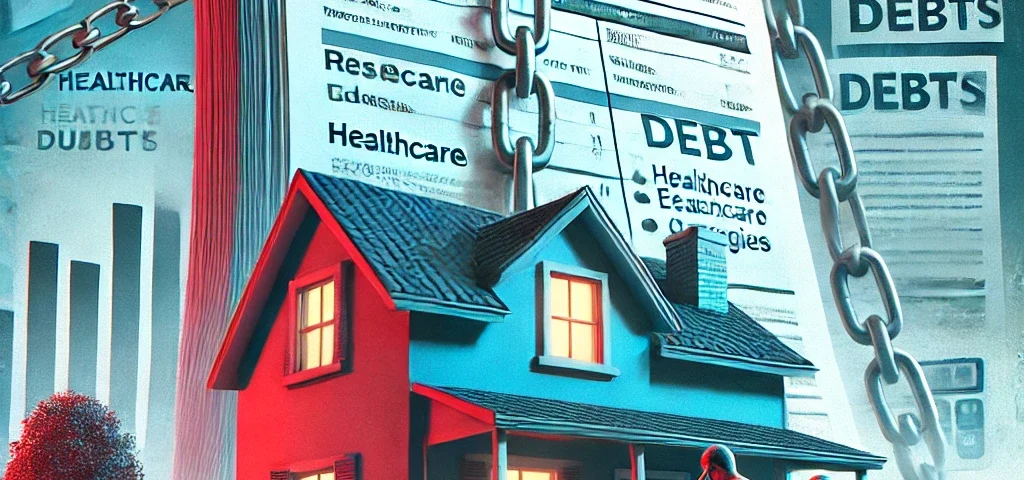High Taxes Lead to High Household Debt
In today’s economy, families and individuals struggle with mounting financial burdens. One significant contributor to this financial strain is excessive taxation. High taxes lead to high household debt, forcing many people to rely on loans and credit to cover basic expenses. Understanding this correlation is crucial in making informed financial decisions and finding ways to reduce the impact of high taxes on personal finances.
The Link Between High Taxes and Household Debt
1. Higher Tax Burdens Reduce Disposable Income
When taxes increase, individuals and households are left with less disposable income. This financial squeeze makes it harder to cover daily living expenses, such as rent, groceries, and healthcare. As a result, many people resort to credit cards and loans to bridge the gap. Over time, this pattern supports the notion that high taxes lead to high household debt, as families accumulate more liabilities just to maintain their standard of living.
2. Rising Cost of Living and Taxation
The cost of living has been increasing, and high taxation amplifies the financial strain. Essentials like housing, education, and healthcare already consume a large portion of household incomes. When tax rates rise, families have even fewer resources to allocate toward these necessities, pushing them further into debt.
3. Increased Borrowing Due to Insufficient Savings
When taxes eat into savings, individuals are left with little to no emergency funds. In the event of an unexpected expense—like a medical emergency, job loss, or home repair—many are forced to rely on loans or credit, further compounding their debt.
4. Business and Employment Impact
High taxation affects not only individuals but also businesses. When businesses face higher tax rates, they may cut jobs, reduce salaries, or increase prices. These changes directly impact households, making it harder to manage expenses without borrowing — ultimately proving that high taxes lead to high household debt.
How High Taxes Affect Different Income Groups
Low-Income Households
Lower-income families are particularly vulnerable to the impact of high taxes. With fewer financial resources, they struggle to afford necessities and often rely on high-interest loans, payday lenders, or credit cards.
Middle-Class Families
The middle class bears the brunt of increasing taxes, as they do not qualify for many government assistance programs but also do not earn enough to afford rising costs comfortably. Many in this group turn to mortgages, student loans, and personal loans to maintain their standard of living.
High-Income Earners
While high-income earners have more financial flexibility, increased taxation can still limit their investment opportunities, savings, and discretionary spending. Many look for tax-saving investment options to reduce their burden.
Strategies to Minimize the Impact of High Taxes on Household Debt
1. Tax Planning and Deductions
Understanding tax deductions and credits can significantly reduce your tax liability. Some common deductions include:
Mortgage interest
Student loan interest
Medical expenses
Charitable donations
Retirement savings contributions
2. Budgeting and Expense Management
Creating a budget helps in tracking expenses and ensuring that you are living within your means. Prioritizing essential spending, reducing unnecessary expenses, and increasing savings can help prevent over-reliance on credit.
3. Building an Emergency Fund
An emergency fund acts as a financial cushion during unexpected expenses, reducing the need for borrowing. Experts recommend saving at least three to six months’ worth of expenses in a separate account.
4. Investing in Tax-Efficient Assets
Investing in tax-free or tax-deferred accounts, such as Roth IRAs, 401(k)s, or municipal bonds, can help minimize tax burdens and improve financial stability.
5. Exploring Additional Income Streams
Finding ways to supplement your income through side businesses, freelancing, or passive income sources can help counterbalance high taxes and reduce dependency on loans.
6. Debt Consolidation and Refinancing
For those already burdened by high debt, consolidating multiple debts into a lower-interest loan can make repayment more manageable. High taxes lead to high household debt, further compounding financial stress. Refinancing mortgages or student loans at lower rates can also help reduce the burden and improve overall financial stability.
Government Policies and Tax Reforms
Governments play a crucial role in shaping tax policies that impact households. Since high taxes lead to high household debt, advocating for fair taxation, progressive tax reforms, and financial education programs can help alleviate the financial burden on families.
Potential Tax Reforms to Reduce Household Debt
Lowering income tax rates for middle and lower-income families
Expanding tax credits for education, housing, and healthcare
Reducing corporate taxes to encourage job growth and wage increases
Implementing tax incentives for savings and investments
Conclusion for high taxes lead to high household debt
It is evident that high taxes lead to high household debt, affecting financial stability and long-term wealth accumulation. However, through smart financial planning, tax-efficient investments, and proactive debt management, individuals and families can mitigate the impact of heavy taxation. Understanding tax policies and advocating for necessary reforms can further help in creating a more financially secure future.
Take Control of Your Financial Future with TheLiveLead!
At TheLiveLead, we provide expert insights and strategies to help you navigate financial challenges and build a secure future. In today’s economy, high taxes lead to high household debt, making it more important than ever to stay informed, plan wisely, and make the most of your hard-earned money. Subscribe today for more financial tips and updates!
